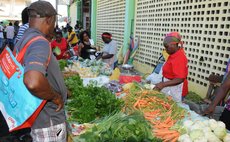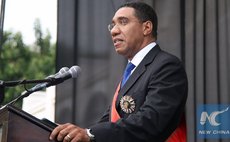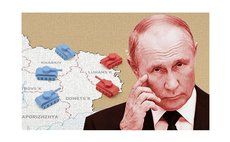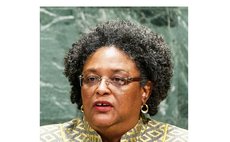Caribbean food security and the private sector
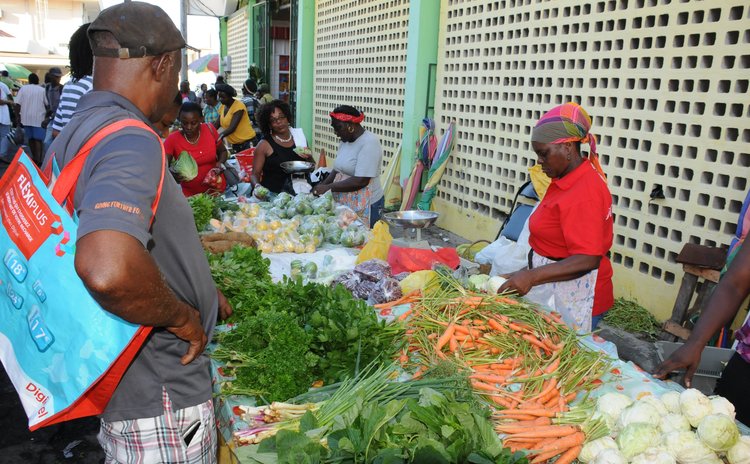
Gervase Warner, the Chief Executive Officer of Massy Holdings, was direct.
Speaking in Trinidad at the second regional Agri-Investment Forum as Chairman of the CARICOM Private Sector Organisation, he said: "Food security has clearly become front and centre, a critical issue for our own survival. It is very clear to us we are not going to get help from our colonisers of the past, we are not going to get help from big developing countries…This is our problem for us to address."
He told participants that if the private sector were to invest in agricultural production in Belize, Guyana, Trinidad and elsewhere, it would be possible to produce 25% of the region's food and agricultural requirements by 2025, reducing the present US$4bn cost of CARICOM's food imports by at least US$1.2bn.
His remarks come as conflict in Europe, sanctions, global decoupling, climate change, and drought are causing energy, fertiliser, and transport prices to surge, making the long-term economic outlook for food security challenging for every nation that is a net importer.
The Forum indicated that some progress towards achieving CARICOM's 2025 food production target is happening in Jamaica, St Lucia, and Guyana, and that several other nations are seeking financing for agricultural expansion through a special Republic Bank facility.
More importantly, detail was provided about potentially game changing infrastructural and other initiatives being developed by a 'coalition of the willing' in the shape of Guyana, Suriname, Trinidad, and Barbados that if delivered will be developmental.
What the four nations envisage beyond the large-scale provision of agricultural land for food production by Guyana and Suriname, is the development of an intra-regional shipping service, the construction of a regional food hub in Barbados possibly linked to others in Antigua, Jamaica, St Lucia, and Trinidad, the development of value added agri-processing facilities in the OECS and elsewhere, and a proposal to use Suriname's, and possibly Venezuela's natural gas if brought ashore in Trinidad, to produce fertiliser for regional sale and export.
As a further step, discussions have begun with the Governor of Brazil's landlocked agriculture-dominated northern province of Roraima about creating a regional outlet through Guyana for agricultural goods, while Suriname is to develop ideas as to how national and regional industrial policies in CARICOM might be created that horizontally integrate regional food production with manufacturing.
The Trinidad Forum also indicated that if this strategic southern vision is to succeed, it will require large Caribbean corporations to be convinced that such plans are commercially viable and executable.
Strikingly, however, what is emerging is a reluctance on the part of the regional private sector to consider intra-regional cross-border investments. This is despite some of the bigger players in CARICOM already being invested in agricultural ventures in Latin America.
Several Heads of Government speaking at the conference made clear that if the region's own companies were unable to take advantage of the agricultural and related investment opportunities that now exist in Guyana, Suriname, Belize, and elsewhere, they would turn to foreign investors: in effect reversing the post-independence experience which saw foreign companies withdraw from owning and long-leasing Caribbean agricultural land.
At the Forum, Trinidad's Prime Minister, Keith Rowley, Guyana's President, Ifran Ali, and Suriname's President, Chandrikapersad Santokhi, all spoke about what Prime Minister Rowley described as "the resistance" of business to the initiatives that are being developed.
Prime Minister Rowley appealed to the region's private sector "to change the formulae of trade" by using the time it will take to get crops into the ground to become distributors of local produce rather than commission agents for those outside of the region. He also sought to reassure the region's small farmers that the drive for investment in large-scale agriculture for regional supply was not intended to displace or replace them, but to put in place systems that will help them too.
But this is far from being the whole story.
The economist Marla Dukharan, is of the view that the principal reason for the reluctance on the part of the regional and external private sector, whether in relation to investment in agriculture or much else, relates to how little progress has been made in addressing what she describes as the "dis-ease of doing business" in the region.
She suggests that recent acquisition, expansion, and consolidation trends involving the region's non-tourism private sector indicate that investors continue to require "meaningful counterbalancing", in the form of Government concessions to compensate for the costs and risk of doing business, and to make an investment opportunity sufficiently attractive.
She also believes that climate risks in the Eastern Caribbean, the smallness of market size, access to credit, and difficulty in penetrating any industry already dominated by a few big private players act as additional disincentives, as do formal foreign exchange restrictions in Barbados and The Bahamas, and de facto controls and risks in Trinidad that disincentivise investors. . Only in the case of Guyana, Jamaica, and the Dominican Republic does she see "more opportunity and possibility than costs and risks".
Apart from this illustrating the urgency of addressing entrenched mismatches between public policy and private sector concerns, the regional private sector's disinclination to invest in the Caribbean indicates the importance of accelerating the wider treaty and regional reforms necessary to stimulate the free movement of capital and labour.
Or put another way, if change does not happen, the newfound political will, vision, and desire to pursue competitive advantage based on economic complementarity now being shown by Guyana, Suriname, Trinidad, and Barbados will be frustrated.
The restructuring implied by the region accepting responsibility for its own food security is as great a challenge in its own way as that faced when preferential commodity arrangements with Europe ended.
Then, instead of linking EU support for the long overdue consolidation of commodity agriculture to a gradual transition into food production, Caribbean governments accepted by default the compensating rise of tourism and migration away from the land, embracing instead globalisation-enabled cheap food imports.
If for whatever reason larger entities in the regional private sector are unable to identify the commercial viability or successfully invest in Caribbean food security, others in China, Saudi Arabia, and the Gulf with the wherewithal will do so, assuming responsibility for feeding the Caribbean.
Once again, holistic solutions and a long-term vision of a world that is changing are required; along with transparency and better explanations as to how governments intend facilitating intra-regional investment.
David Jessop is a consultant to the Caribbean Council Previous columns can be found at https://www.caribbean-council.org/research-analysis/ david.jessop@caribbean-council.org September 2nd, 2022
